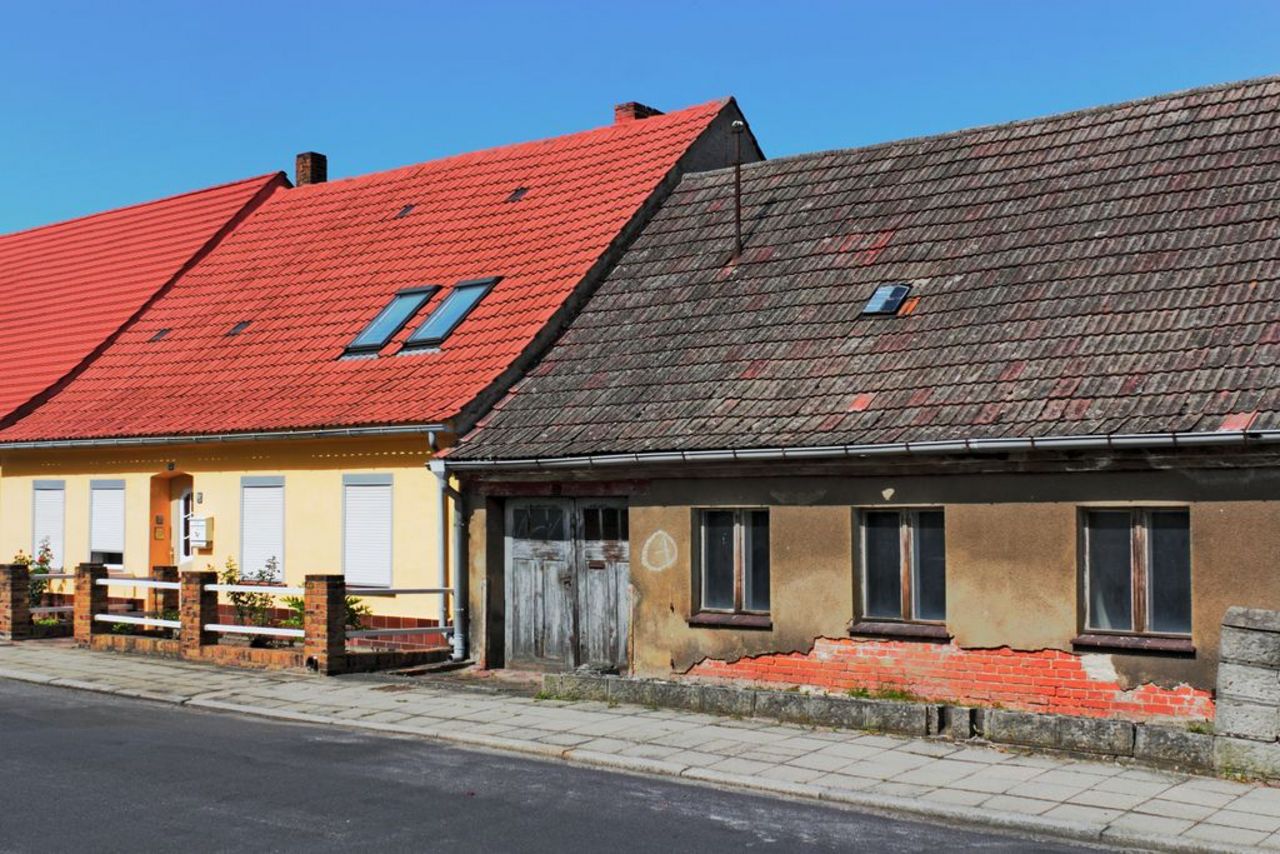Project
Poverty and Social Integration in Rural Areas

There is poverty even in a rich country such as Germany. This poverty has many faces and being poor in rural areas is different than being poor in a big city. Poverty in rural areas is more likely to be hidden and may be more severe in its consequences for the poor. This project aims at investigating different "faces of poverty" in rural areas.
Background and Objective
From other research and our own pilot study we can draw assumptions about the peculiarities of rural poverty. Thus, rural poverty is:
- probably more covered or hidden than in urban areas and could be underrepresented in official statistics;
- worsened in its consequences by mobility issues: people in rural areas need a car for keeping up their everyday life;
- shaped by shrinking processes which lead to thinning out of infrastructure especially in eastern Germany;
- exacerbated by selective out-migration of younger, skilled persons;
- probably, and contrary to common assumptions of stronger social integration in close-knit communities, more often stigmatized in smaller, rural villages.
In our project we want to test and challenge these assumptions. In particular, we want to analyze how social, economic and infrastructural conditions shape and influence different forms of poverty and coping with its consequences. How do these conditions influence social integration of poor people in rural areas and "feelings of being left behind"?
Approach
Multi-method approach (qualitative and quantitative research methods)
Our Research Questions
This project looks at the extent and the different dimensions of rural poverty. We ask:
(1) To what extent is there rural poverty in different rural areas in Germany?
(2) Which are the different forms and dimensions of rural poverty?
(3) How do poor people in rural areas cope with consequences of poverty?
Preliminary Results
A pilot study on poverty in rural and non-rural areas in Mecklenburg-Vorpommern in north-eastern Germany showed that there is a big difference in satisfaction with their residential environment and the infrastructure between poor people in the city of Rostock and the rural areas in the region Mecklenburgische Seenplatte. In the city respondents are more or less content with reachability of doctors, social workers, community centres, super markets etc. In contrast, for respondents in rural areas mobility and the lack of infrastructure is a big issue. Without a car they are literally stranded. Owning a car, paying for gas and repairs is a major cost factor which affects poor people in rural areas way more than those in the city.
Thünen-Contact

Involved external Thünen-Partners
-
Universität Rostock
(Rostock, Deutschland)
Duration
10.2016 - 12.2025
More Information
Project status:
ongoing
Publications to the project
- 0
Adebahr P, Keim-Klärner S, Knabe A, Klärner A (2023) "Usually, I do not quarrel" - What type of ties do we find when we ask about conflicts using a name-generator approach? Field Methods: Online First, Dec 2023, DOI:10.1177/1525822X231220596
- 1
Viry G, Dülmen C van, Maisonobe M, Klärner A (2022) On the role of space, place, and social networks in social participation. Soc Inclusion 10(3):217-220, DOI:10.17645/si.v10i3.6186
- 2
Dülmen C van, Klärner A (2022) Places that bond and bind: on the interplay of space, places, and social networks. Soc Inclusion 10(3):248-261, DOI:10.17645/si.v10i3.5309
- 3
Knabe A, Keim-Klärner S, Klärner A, Neu C (2021) Lebenschancen in ländlichen Räumen: Gelegenheitsstrukturen als Dimension sozialer Ungleichheit. In: Hoffmann R, Knabe A, Schmitt C (eds) Ungleichheit, Individualisierung, Lebenslauf : Zur Aktualität Peter A. Bergers. Wiesbaden: Springer Fachmedien, pp 141-163, DOI:10.1007/978-3-658-34223-4_7
- 4
Krug G, Brandt S, Gamper M, Knabe A, Klärner A (2020) Arbeitslosigkeit, soziale Netzwerke und gesundheitliche Ungleichheiten. In: Klärner A, Gamper M, Keim-Klärner S, Moor I, Lippe H von der, Vonneilich N (eds) Soziale Netzwerke und gesundheitliche Ungleichheiten : eine neue Perspektive für die Forschung. Wiesbaden: Springer VS, pp 309-328, DOI:10.1007/978-3-658-21659-7_13
- 5
Klärner A, Knabe A (2019) Social networks and coping with poverty in rural areas. Sociologia Ruralis 59(3):447-473, DOI:10.1111/soru.12250
- 6
Knabe A, Brandt S, Fischer HS, Böhnke P, Klärner A (2018) Anerkennungsdefizite im Kontext von Prekarität und Erwerbslosigkeit aus Perspektive der Netzwerkforschung. In: Bereswill M, Burmeister C, Equit C (eds) Bewältigung von Nicht-Anerkennung : Modi von Ausgrenzung, Anerkennung und Zugehörigkeit. Weinheim: Juventa, pp 186-209
- 7
Knabe A, Fischer HS, Klärner A (2018) Armut als relationales Konstrukt: Die (Re-)Produktion sozialer Ungleichheiten durch Stigmatisierung und Kontrollversuche in sozialen Netzwerken. In: Behrmann L, Eckert F, Gefken A, Berger PA (eds) 'Doing Inequality' : Prozesse sozialer Ungleichheit im Blick qualitativer Sozialforschung. Wiesbaden: Springer VS, pp 167-190, DOI:10.1007/978-3-658-07420-3_8
- 8
Klärner A (2018) Armut auf dem Land ist anders. LandInForm(3):14-16
- 9
Knabe A, Aretz B, Biemann M, Braack MK, Hanauer D, Kundler L, Samula P, Schwichtenberg N, Klärner A (2018) Die alltägliche Bewältigung von Armut - Individuelle Handlungsstrategien unter der Bedingung materieller Knappheit in städtischen und ländlichen Räumen Mecklenburg-Vorpommerns. Braunschweig: Johann Heinrich von Thünen-Institut, 56 p, Thünen Working Paper 109, DOI:10.3220/WP1541166325000
- 10
Keim S, Klärner A, Knabe A, Berger PA (2018) Soziale Folgen von Bildungsarmut. In: Quenzel G, Hurrelmann K (eds) Handbuch Bildungsarmut. 1. Aufl. Wiesbaden: Springer Fachmedien, pp 585-602, DOI:10.1007/978-3-658-19573-1_23
- 11
Klärner A (2017) Armut auf dem Lande : ein Thema für Forschung und Politik auch in Deutschland? [online] SozBlog:1-13, zu finden in <http://soziologie.de/blog/2017/08/armut-auf-dem-lande-ein-thema-fuer-forschung-und-politik-auch-in-deutschland/#more-4619> [zitiert am 12.09.2017]
- 12
Klärner A (2017) Gelegenheitsstrukturen für Engagement von Menschen in Armut in ländlichen und nichtländlichen Räumen. Newsl Engagement Partizip Deutschl(14):1-9
- 13
Klärner A, Keim S, Knabe A (2017) Is rural poverty something special? A case study in Mecklenburg-Vorpommern, Germany. In: Heindl A-B, Steinführer A, Fick J, Breeck I, Kohring J, Küpper P, Neumeier S (eds) "New rural geographies in Europe: actors, processes, policies" : European Rural Geographies Conference ; June 14-17, 2017 ; Braunschweig, Germany ; Book of Abstracts. Braunschweig: Thünen-Institut

![[Translate to English:] [Translate to English:]](/media/_processed_/2/0/csm_LV_Bei_Hornburg_Quelle_Johanna_Fick_neu_da89674833.jpg)
![[Translate to English:] [Translate to English:]](/media/_processed_/2/0/csm_LV_Bei_Hornburg_Quelle_Johanna_Fick_neu_3aae309567.jpg)
![[Translate to English:] Logo des Bundesministerium für Ernährung und Landwirtschaft](/media/allgemein/logos/BMEL_Logo.svg)